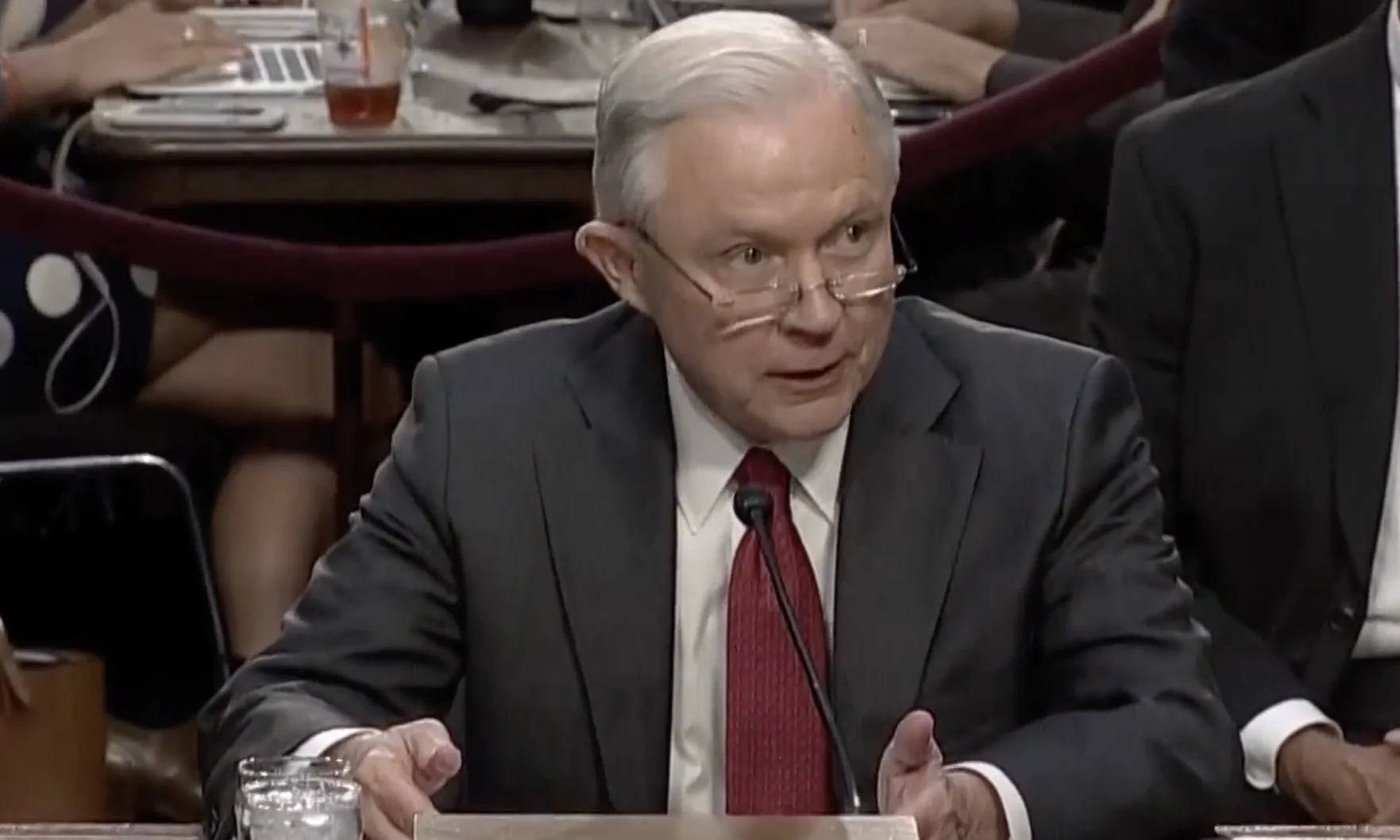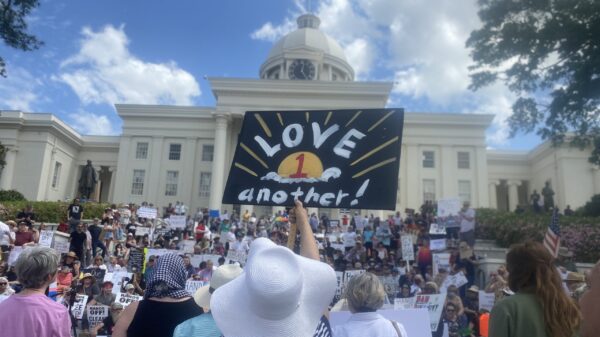By Chip Brownlee
Alabama Political Reporter
WASHINGTON — Less than a week after the testimony of former FBI Director James Comey, Attorney General and former Alabama Sen. Jeff Sessions sat in the same chair as the former law enforcement official and delivered a somewhat different set of what he said were facts, defending himself and the Trump camp from what has amounted to a near ceaseless onslaught of new reports and allegations.
In front of the U.S. Senate Intelligence Committee, Sessions called allegations that he might have colluded with Russia during the 2016 presidential election absurd “innuendo” and “false attacks.” The early supporter of President Donald Trump’s campaign pressed back against Democratic senators’ pointed questions.
“I was your colleague in this body for 20 years, at least some of you, and the suggestion that I participated in any collusion or that I was aware of any collusion with the Russian government to hurt this country, which I have served with honor for 35 years, or to undermine the integrity of our democratic process, is an appalling and detestable lie,” Sessions said under oath before the committee.
During his February confirmation hearings before the Senate Judiciary Committee, Sessions said he did not have any contact with Russian officials during the campaign. A month later, reports surfaced that Sessions had met twice with Sergey Kislyak, the Russian ambassador. In Comey’s testimony in a closed hearing last week, the former FBI director reportedly told senators on the high-powered committee that Sessions had met with Kislyak for a third time at a D.C. hotel in April 2016 and failed to report it.
Sessions fervently denied that allegation, saying he did not have any private meetings at the hotel where Trump was giving his first major foreign policy address.
“I did not have any private meetings nor do I recall any conversations with any Russian officials at the Mayflower Hotel,” Sessions said. “If any brief interaction occurred in passing with the Russian ambassador during that reception, I do not remember it.”
Sessions in March acknowledged two meetings with Kislyak that he did not previously disclose in his Senate testimony. On March 2, he formally recused himself from investigations within the Justice Department directed toward Russian interference with the 2016 election. In his Senate testimony, he said he was already effectively recused before he formally made the announcement, declining briefings on the matter and avoiding information pertinent to the investigation.
His recusal, Sessions said, did not originate from any inappropriate activity; instead, he said it was appropriate because he was a surrogate for the campaign and a close confidant of the president, whose campaign might have been under investigation.
But several Democratic senators confronted Sessions about his involvement with Comey’s firing, asking why the attorney general had been involved at all with Comey’s firing if the former FBI director had been overseeing the investigation from which Sessions had recused himself.
“It is absurd, frankly, to suggest that a recusal from a single specific investigation would render an attorney general unable to manage the leadership of the various Department of Justice law enforcement components that conduct thousands of investigations,” Sessions said of his decision to get involved with Comey’s dismissal.
Sessions cited Comey’s handling of the investigation into former Democratic candidate Hillary Clinton’s emails as a prime reason why he concurred with the written statements put out by the administration on their decision to kick Comey out. But only a few days after the firing, Trump told NBC’s Lester Holt that Comey’s firing had, in fact, been his idea and it did originate from his handling of the Russia investigation.
The former Alabama senator didn’t get into detail about Comey’s firing and refused to say whether he had private conversations with the president about it, citing “longstanding policy” that cabinet officials do not talk about conversations they have with the president for confidentiality reasons. Though Trump never exerted executive privilege to prevent Sessions’ testimony, Sessions essentially censored himself.
Sessions’ closely watched testimony comes only days after reports of a rift between the attorney general and the president over Sessions’ decision to recuse. Sessions had reportedly offered to resign in order to please the president who was disgruntled that Sessions didn’t have direct oversight over the Russia investigation, which now lies in the hands of Deputy Attorney General Rod Rosenstein and Special Counsel Robert Mueller.
Staff in the Trump administration spent Monday and Tuesday patting down reports that Trump was considering another potentially game-changing firing — that of the special counsel, Mueller. The reports came as some top trump supporters, including Newt Gingrich, and Newsmax CEO Chris Ruddy — a friend and Trump confidant — began questioning Mueller’s ability to serve as an impartial supervisor. Ruddy said Trump was considering it.
Sessions and Rosenstein, who also testified on Capitol Hill Tuesday, both dismissed the reports as an improbability. There is a legal question of whether Trump himself could fire Mueller. Rosenstein, who now directly oversees the FBI, would likely have to make the move. He said Tuesday that he has no plans to do so.
But to many senators’ disdain, Sessions was largely mum during his testimony, refusing to discuss his talks with the president even as several senators asked him to present the legal basis for doing so, considering Trump had decided against exerting executive privilege.
Sen. Angus King, an independent from Maine, was perhaps his starkest critic. “You said you don’t have the power to assert Executive Privilege, so what is the legal basis for your refusal to answer these questions,” King questioned Sessions.
“I am protecting the right of the President to assert, it if he chooses, and there may be other privileges that could apply in these circumstances,” Sessions responded.
Unsurprisingly, no bombshells emerged in Sessions’ testimony, perhaps to the disappointment of some Trump detractors who are still coming down from Comey’s testimony last week. During that testimony, Comey laid out a series of events in which the president seemed to be trying to hinder an investigation into one of his former top aides and National Security Adviser Michael Flynn, who is reportedly under investigation for his Russian contacts.
Email Chip Brownlee at cbrownlee@alreporter.com or follow him on Twitter.






















































